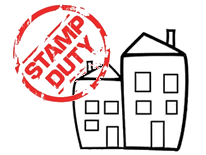As we enter the New Year many people use the holiday break as an opportunity to discuss the potential purchase of big ticket items. When speaking about ‘big ticket’ items I am specifically referring to the purchase of a new family home, investment property, or vehicle (car, boat). Similarly, January is frequently the time of year when many people start making plans to start a new business enterprise. When thinking about any of these purchases it is crucial to consider the impact of stamp duty when calculating the overall cost of this investment.
Stamp Duty is a State assessed tax enshrined in the Stamp Duties Act 1923 which is charged on certain documents and transactions (usually where a transfer of ownership has occurred).
Stamp Duty is charged at either a flat rate or an ad valorem rate (based on the value of the transaction) depending on the particular document or transaction.
Although it is common (and very practical) for the purchaser to pay the Duty assessed upon any document or transaction, the Act does not record this. In the event an audit takes place by Revenue SA and it is found Duty has not been paid on a particular transaction, even the seller, not the purchaser, may be ordered to make payment.
The following documents can attract Stamp Duty;
- Insurance documents,
- Leases,
- Mortgages,
- Motor vehicles transfers (including cars, boats and motorcycles)
- Share transfers, and most significantly,
- Land and/or house
Most of us will pay Stamp Duty at some point in our lives, most commonly when we buy a home. It sometimes comes as a surprise at how much the stamp duty is, especially when it is calculated on the basis of the value of the transaction. For instance, when purchasing a new residential property at a cost of $700,000, you can expect to add an additional $32,330 (plus a further $5,165.50 registration fees) over and above the cost of the property!
However, there are a number of concessions and/or exemptions available to reduce or relieve people of the payment of Duty. Some examples are as follows;
- First Home Concessions available to first home buyers who meet certain criteria,
- The transfer by an estate to a beneficiary in accordance with the Will of a deceased person,
- Stamp Duty Concession on the Purchase of an Off-the-plan Apartment – which relates to a new apartment or substantially refurbished apartment within the City of Adelaide.
- The transfer of a shared residence or motor vehicle between spouses or former spouses or domestic partners, and
- The transfer of a family farm between related parties (which is defined) where the land is used wholly or mainly for the business of primary production, is greater than 0.8 hectares and a business relationship existed between the parties for at least 12 months before the transfer was executed.
There are other exemptions but there are also instances when a higher rate of Duty is payable, such as the transfer of a business (or share or unit in a unit trust of that business) which is land rich (now described as having land in SA worth more than $1M – ignoring loans and mortgages).
The calculation of Stamp Duty can be very complex and must be considered, with all the exemptions and higher rates that might be available prior to embarking on any transaction. Of course, for any questions related to Stamp Duty, specifically as it pertains to an existing estate or transfer of property between family members, it is recommended that you seek advice from a legal expert specialising in this field. Welden & Coluccio Lawyers, the estate specialists, are equipped to assist you with any concerns relating to the application of Stamp Duty in a range of circumstances.



